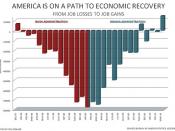The Meaning of Suffering in Job and The Aeneid
Throughout Virgil's Aeneid and Job from the Old Testament, great obstacles block the paths of the protagonists. Mental and physical, anguish is placed upon Job and Aeneas. Though both men suffer extreme pain, the extent and content of the tribulations are different.
Job's suffering is placed upon him without provocation. Aeneas also believes his "pain [is] so great and unmerited!" (Virgil 2.89). Juno's hatred towards the Trojans, however, is fueled by many things such as the descent of the Trojans from Jupiter's illegitimate son and the fact that the Trojan people are fated to destroy Carthage, her favorite city.
God takes away everone deat to Job. He is physically alone except for Eliphaz, Bilad, Zophar and Elihu. These men, although they are the only people to speak to Job, offer very little sympathy. They blame him for his misfortune and tell Job that he has probably angered God to an extent that his punishment is deserved.
Aeneas, though, has the companionship of his men and other friends which help him along his journey. Not only are his men friendly and admiring of Aeneas, they are on his side. They help him on his journey. They are all fighting for the same cause. This fact alone makes Job's misfortune more taxing.
Their mental anguish is not limited to matters of this world. Each man is faced with dillemas concerning their spiritual beliefs. Though he begs and calls to God for an explanation, Job receives nothing. This causes alone causes more mental anguish than anything else that happens in either work. Job's family is exterminated, he is pile of fermenting flesh, and he has no sign from God as to why this is happening. Job does not even get omens...


